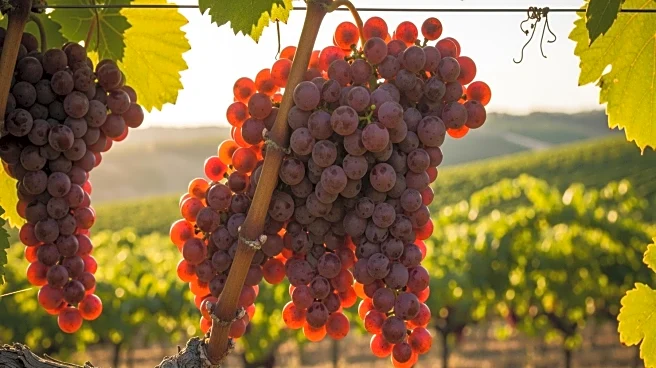What's Happening?
California's wine industry is facing existential threats from Pierce's Disease, a bacterium spread by insects, exacerbated by climate change. Winemaker Adam Tolmach is pioneering the use of hybrid grapes, developed at UC Davis, that are resistant to this
disease. These hybrids, including Paseante Noir and Ambulo Blanc, offer a sustainable alternative to traditional grape varieties, allowing for organic farming without chemical treatments. This shift is reshaping the future of wine production in California.
Why It's Important?
The introduction of hybrid grapes represents a significant advancement in sustainable agriculture, potentially reducing reliance on chemical treatments and improving vineyard health. This innovation could help the wine industry adapt to climate change, preserving its economic viability and cultural heritage. The hybrids also promise wines that are more expressive of their terroir, offering consumers new and unique flavors.
What's Next?
As hybrid grapes gain traction, more vineyards may adopt these varieties, leading to broader changes in wine production practices. This could influence consumer preferences and market dynamics, with potential impacts on wine pricing and distribution. Continued research and development in grape breeding will be crucial to expanding the range of hybrids available to growers.
Beyond the Headlines
The shift to hybrid grapes highlights the broader challenges facing agriculture in the face of climate change. It underscores the need for innovation and adaptation in farming practices to ensure long-term sustainability. This development also raises questions about the future of traditional grape varieties and the cultural implications of changing wine profiles.
















